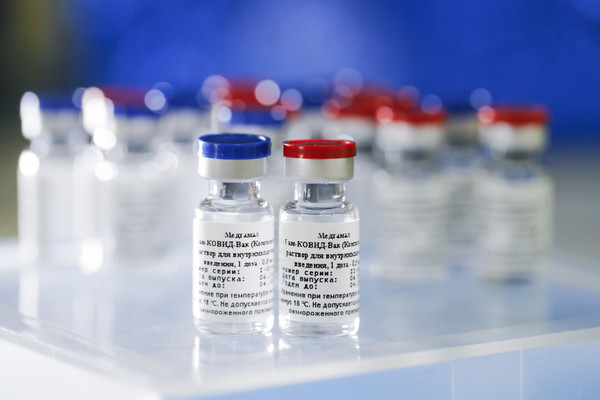The GL Rapha Consortium, a group of Korean companies united to produce 500 million doses of Sputnik V, a Russian-made Covid-19 vaccine, is showing signs of a breakup, according to industry sources on Monday.

The consortium of Hankook Korus, Chong Kun Dang Bio, Binex, Isu Abxis, Humedix, Quratis, and Jetema has already seen three companies leave. Industry experts attribute the companies leaving the consortium to Russia’s change of production order.
Sputnik V requires recipients to take two jabs like the mRNA vaccines, and the consortium initially signed a contract to manufacture 500 million doses for first shots. However, GL Rapha said that the Russian government recently requested the consortium manufacture the second-shot doses instead of the first shots.
The problem is that the components of the first (adenovirus type 26) inoculation dose and the second (adenovirus type 5) inoculation dose are different, forcing consortium members to change their production lines.
Furthermore, the second inoculation dose is less profitable than the originally requested first inoculation dose.
The Sputnik-V vaccine has not received World Health Organization's approval.
Chong Kun Dang Bio is the most recent company to withdraw from the consortium.
Chong Kun Dang Bio planned to take up the drug product (DP) process -- putting the Covid-19 vaccine stock solution into an injection vial.
However, the company said Sunday that it would no longer participate in the consortium.
"We made an inevitable choice to focus on the newly entered botulinum toxin business," a Chong Kun Dang official said to Korea Biomedical Review on Monday.
The company's announcement comes after Humedix and Binex left the consortium last year.
GL Rapha Consortium excluded Humedix in April. The latter joined another consortium established by Huons Global, its parent company, to manufacture Sputnik Light, a single-dose version of Russia's Covid-19 vaccine Sputnik V, without prior consultation.
Binex reportedly left the consortium late last year due to the Russian request to use Chinese-made incubators.
There were also reports that Jetema, responsible for the vaccine drug substances (DS), may also withdraw from the consortium and make an independent contract manufacturing organization (CMO) contract with the Russian government.
However, Jetema made it clear the company has not yet decided on the matter.
"Withdrawing from the consortium has not yet been finalized and is under review," a company official said. "We are aware that the Russian side had changed its request in the initial contract, and there are parts that were difficult to accept due to the scheduling problems."
The company believes that it may be more profitable to sign an independent contract with Russia than to participate in the consortium, the official said, adding that whether the company stays in or leaves the consortium, it would need several months for technology transfer and validation.
Commenting on rumors about a possible lawsuit for damages against the consortium for failing to do its job, the official said, “The lawsuit has not yet been finalized, either. As the company invested in advance according to the original contract, it may file a lawsuit depending on how the relationship between the two sides turns out."
However, he added that the company is still reviewing whether or not to go through with the lawsuit.
Jetema invested about 8 billion won ($6.6 million) to produce the Sputnik V vaccine.
If Jetema ultimately withdraws from the consortium, the number of GL Rapha Consortium's members will decrease to three -- Hankook Korus, Boryung Biopharma, and Quratis.
An analyst also suggested that low profit may be the only reason companies leave the consortium.
"While Sputnik V has yet to receive WHO approval, Pfizer and Moderna are already ramping up production," Lee Jun-soo, an analyst for Prophet Asset Management, told Korea Biomedical Review. "Under this circumstance, Russia's changing requirements to a less profitable vaccine may have likely caused consortium members to leave."
Meanwhile, Hankook Korus, a consortium member as GL Rapha's subsidiary, emphasized that there is no problem in vaccine production even if some companies leave, as there remain key members who will take up the main process.

